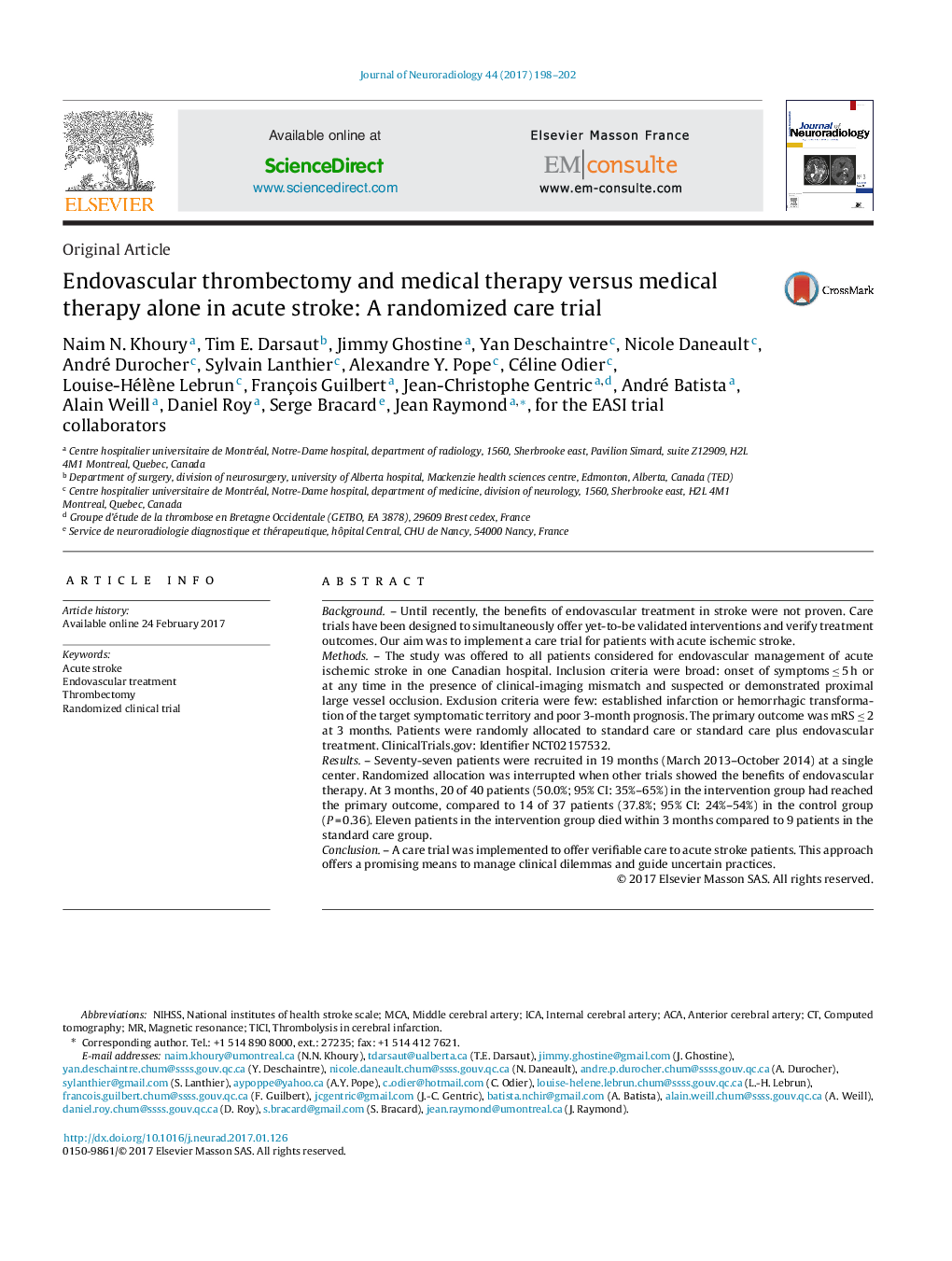| Article ID | Journal | Published Year | Pages | File Type |
|---|---|---|---|---|
| 5726979 | Journal of Neuroradiology | 2017 | 5 Pages |
BackgroundUntil recently, the benefits of endovascular treatment in stroke were not proven. Care trials have been designed to simultaneously offer yet-to-be validated interventions and verify treatment outcomes. Our aim was to implement a care trial for patients with acute ischemic stroke.MethodsThe study was offered to all patients considered for endovascular management of acute ischemic stroke in one Canadian hospital. Inclusion criteria were broad: onset of symptoms â¤Â 5 h or at any time in the presence of clinical-imaging mismatch and suspected or demonstrated proximal large vessel occlusion. Exclusion criteria were few: established infarction or hemorrhagic transformation of the target symptomatic territory and poor 3-month prognosis. The primary outcome was mRS â¤Â 2 at 3 months. Patients were randomly allocated to standard care or standard care plus endovascular treatment. ClinicalTrials.gov: Identifier NCT02157532.ResultsSeventy-seven patients were recruited in 19 months (March 2013-October 2014) at a single center. Randomized allocation was interrupted when other trials showed the benefits of endovascular therapy. At 3 months, 20 of 40 patients (50.0%; 95% CI: 35%-65%) in the intervention group had reached the primary outcome, compared to 14 of 37 patients (37.8%; 95% CI: 24%-54%) in the control group (P = 0.36). Eleven patients in the intervention group died within 3 months compared to 9 patients in the standard care group.ConclusionA care trial was implemented to offer verifiable care to acute stroke patients. This approach offers a promising means to manage clinical dilemmas and guide uncertain practices.
